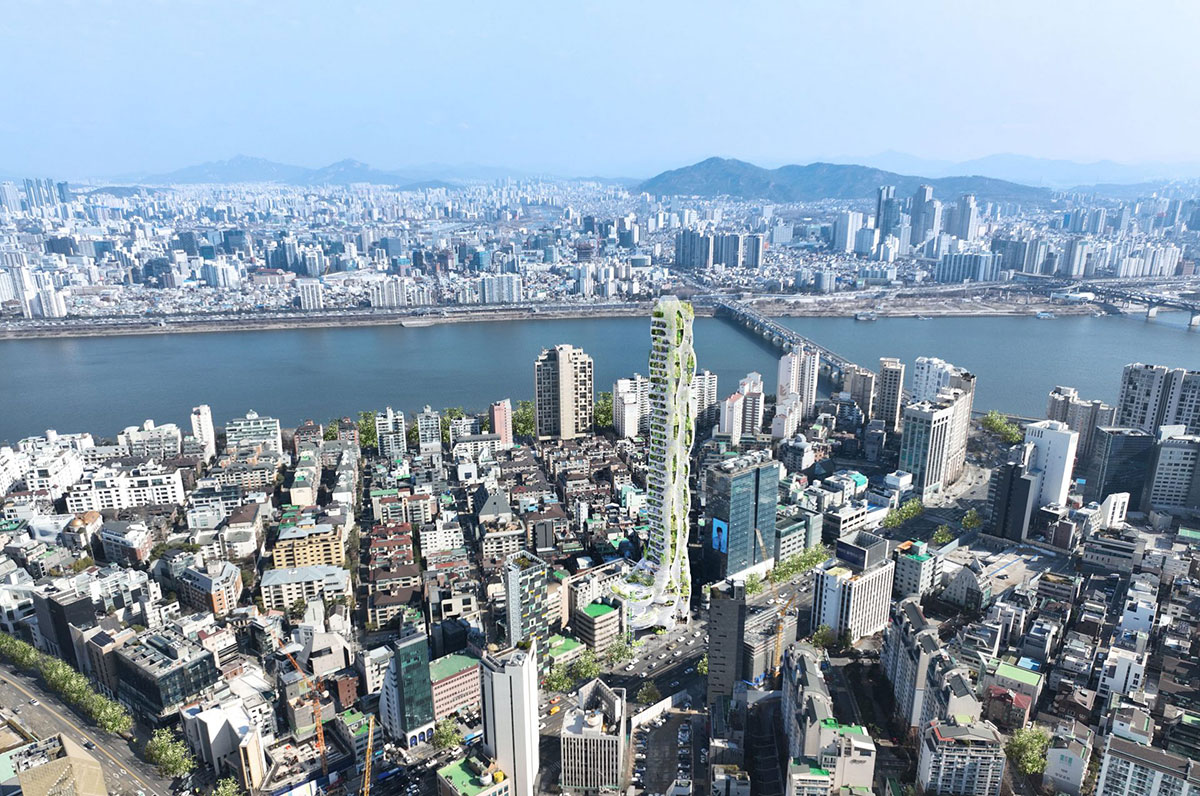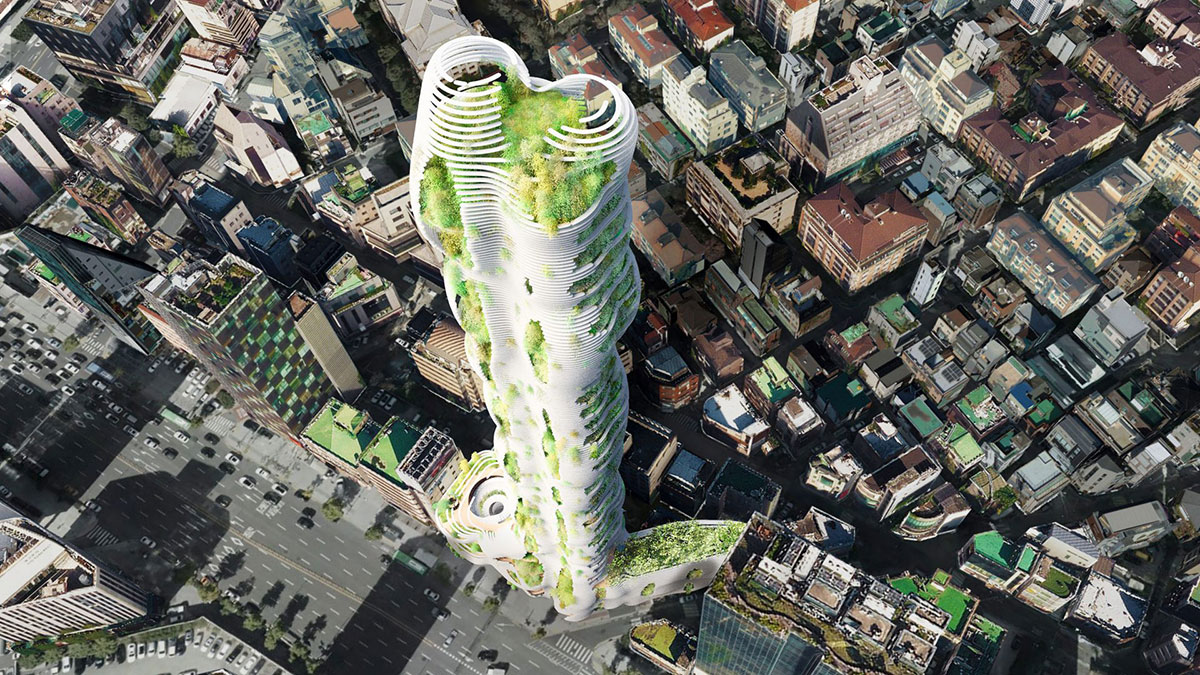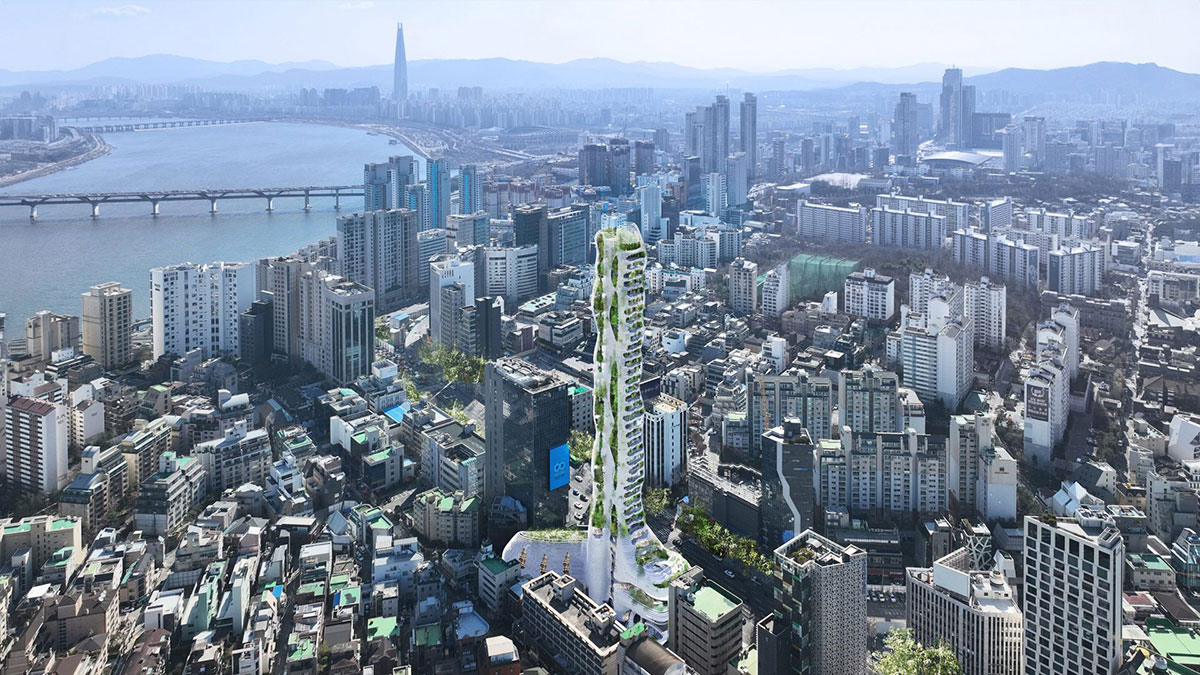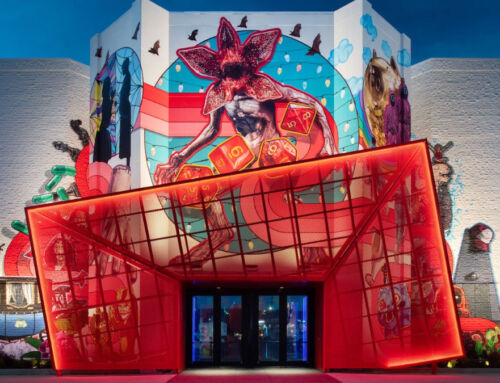When a drop falls on a sheet of water, under certain conditions it produces a rebound effect which projects a column of the same liquid in the opposite direction to the direction in which it fell. This column of water is precisely the general shape that seems to inspire the design and architecture of the Cheongdam Tower by the Berlin, Germany-based architectural firm J.Mayer.H Architekten. The design and architecture project of this mixed-use skyscraper became public when it was announced that it had won the international competition organised by the authorities in Seoul, the capital of South Korea.

According to the architects themselves, Cheongdam means “clear water” in Korean. As we can see, it is no coincidence that the design and architecture of the tower is reminiscent of the water column. In fact, the theme of water is “the starting point for its flowing, organic design with green terraces and protective façade waves that surround the building like ripples of a drop on the water surface”. As if that were not enough, “the sustainable use of water and greening with plants is a central concern in the development of the Cheongdam Tower”. The result is an “a living, breathing organism in the urban landscape”.

Meandering paths, open green spaces, water features, cultural event spaces, “luxury shopping areas” are distributed along the skyscraper and on its pedestal. A rooftop terrace with unbeatable views of the city and the Han River crowns the project by J.Mayer.H Architekten. According to its creators, the public spaces that make up the design and architecture of the Cheongdam Tower represent “the centre of the Korean fashion and K-Culture scene in Seoul”, or, in other words, “an ideal place of identification for the development and documentation of K-Culture“.


It is necessary to clarify, by way of a final parenthesis, that K-Culture – if we translate the recently coined formula into English – also known as “Korean Wave“, or Hallyu in Korean, refers to the popular culture of South Korea. This includes pop music (also known as K-pop), TV dramas and films, but also literature and performing arts produced in the Asian country. The term serves as a name for the phenomenon of the international expansion of this culture after the film Parasites, by South Korean director Bong Joon-ho, was awarded the Palme d’Or at the Cannes Film Festival in 2019 (unanimously by the jury), followed by Oscars for Best Film and Best International Film.

Source: J.Mayer.H Architekten.
Images: J.Mayer.H Architekten.






